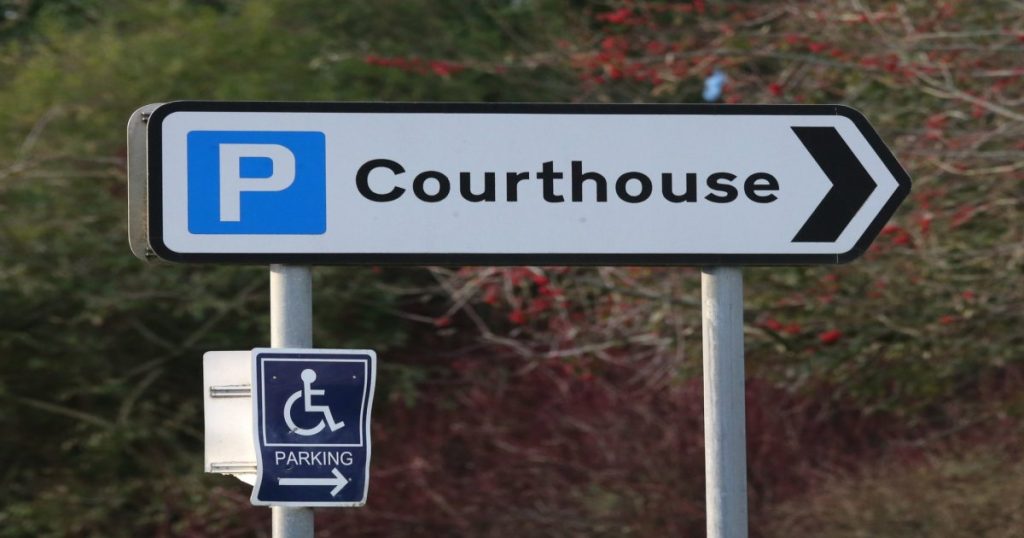Going to court is a daunting experience, especially if it’s your first court hearing after arrest.
There is a judge you’ve never met, many rules to adhere to (some of which you’ve never heard of), and a tough DA to face.
You’ve also probably never had a lawyer and are only interacting with yours for the first time. With your freedom, reputation and money on the line, it is only natural to wonder if your lawyer is qualified and experienced enough to get you a favorable outcome.
There are also different types of court hearings, and each one comes with its particular procedures.
Due to these reasons, a first court hearing can be confusing and worrying. But it’s mainly because we do not know what to expect.
Therefore, the best way to handle your first court hearing and increase the chances of a successful outcome is to effectively prepare for it.
In this article we will discuss five tips to ensure your first court hearing in Texas runs smoothly.
Seven tips to prepare for your first court hearing
1. Organize your documents
You will be required to fill in some paperwork and provide the court with some of your official documents for the hearing.
If you are represented by a lawyer, find out beforehand what you need for the hearing and deliver the documents to them.
What documents will I need for my first court hearing?
- A list of your witnesses
- Copies of your exhibits or evidence
- Copies of your pleadings and those of your opponent
- Your official identification documents, such as your driving license
- Tax forms and bank statements if pursuing a child custody case
Don’t forget to bring your checkbook and some cash. You may need to pay the court clerk for a form or take care of some court charges.
Cash also helps if you want to make copies of documents, pay for parking, buy a bottle of water or a snack.
2. Map your trip to court

Image by Geoffrey Moffett
You should not wait until your court hearing date to find out how to get there.
Map your route beforehand and find out the fastest way to arrive without getting stuck in traffic.
Take a test trip to court on a similar day to your hearing date to find the quickest way to get there. It is the best way for you to discover any challenges related to traffic and parking.
There are consequences of missing court dates or delaying a judge. Therefore, don’t expect to get away with it by saying you got stuck in traffic on the day of your first court hearing.
On the day of your first court hearing, get there as early as possible in the morning and not a few minutes before your hearing.
This will give you enough time to file any necessary documents, fill out required forms, and pay for court charges. You will also have enough time to organize your thoughts for the hearing.
3. Schedule enough time for your first court hearing
You don’t know how long the court hearing will take. A few hours may not be enough.
Free the whole day of your court appearance, ensuring no work or personal commitment interfere with it.
Remember to turn down your cell phone to avoid interrupting the court’s proceedings.
4. Find your way around the courthouse
Finding your way to court is one thing; it is entirely another to find your way around the courthouse or building, especially if you live in a larger city with a large court building.
There may be many courtrooms, and you should know precisely where your first court hearing will be taking place.
Additionally, familiarize yourself with court rules. Most courts have an online platform where you can find the court rules and an up-to-date court calendar. Use it to keep abreast of the details of your court case and find out what happens at the first court hearing.
5. Look up the code of conduct
You are expected to show up in respectable official clothing to court. Find out the official court dress code and prepare the right outfit for your appearance.
Revealing clothes, tattoos, and audacious hairstyles or makeup is frowned upon in court and could minimize your chances of having a successful hearing.
Therefore, groom yourself and look presentable as if you are going for a job interview.
There is also an official code of conduct you are expected to follow when appearing in court for the first time. The best course of action is to behave politely throughout the court process and avoid overt display of emotions.
Your criminal attorney can brief you on these issues to ensure you are not undisciplined on the day of your court hearing.
6. Prepare for your appearance before the judge

Appearing in court for the first time can be daunting. If your strategy is to get to court and just deal with things as they come, you are likely to lose your case.
Prepare thoroughly for your time before the judge by staging mock court sessions with your attorney.
During these practice sessions, you will learn how to behave throughout the court appearance and speak before the judge. You will also know what to expect, such as when to present your documents and how to plead.
You should also familiarize yourself with the laws, codes, and statutes associated with your case and thoroughly review the facts.
It will help you to identify the best arguments to hold in your favor and prepare for any challenges from your opponent.
It helps to sit through a hearing or two before your court appearance to get a feel of the court and see how things work.
There are always unique facts to learn about every courtroom that will increase your chances of getting a successful verdict.
For instance, does the judge have any eccentricities you should know about?
Learning how a judge behaves before your court date will help you interact with them respectfully to improve the success of your hearing.
7. Think of your well-being
You may prepare your route to court, research what happens at the first court hearing, and plan how to handle yourself, but it will be a waste if you are physically unwell.
You should think of your well-being while in court, which means eating well, keeping yourself hydrated, and preparing for any medical emergencies.
A protein-rich breakfast is ideal for an official appearance because it stabilizes your blood sugar and keeps you full for longer.
Drink water beforehand to adequately hydrate yourself, but keep it to a minimum to avoid taking unnecessary bathroom breaks.
Court appearances are stressful and the most likely time to have a medical attack if you are not careful. You could have a diabetic attack or suffer from extreme anxiety, raising your blood pressure.
If you take medication, ensure it is close at hand. This includes any inhalers, epi-pens or other emergency meds.
Tips for self-representation
All the tips outlined above only apply if you have representation for your court hearing.
But many can’t afford a lawyer and will depend on free counsel during a first court hearing after arrest.
The court will appoint a lawyer for you in a criminal case if you cannot afford one. But if you cannot afford to hire a lawyer in a civil case, you will have to represent yourself.
You may choose to represent yourself in a court case anyway because it is your legal right.
Although self-representation is challenging, it is possible. Some court cases are pretty straightforward.
If you choose to represent yourself, here are some preparation tips.
Talk to your witnesses and coach them on how to get through the court process
- Find out the court procedures to follow and prepare for them
- Organize your evidence and read up on the relevant laws concerning your case
- Keep the originals and copies of any court papers necessary ready for the court date
- Secure protection against a violent opponent. It’s not necessary to face an abuser or violent opponent in court. Ask a judge for a better option, such as attending the hearing via video link.
- You could also explore other options to keep your dispute out of court, such as arbitration and mediation.
Final thoughts on your first court hearing
In summary, what do you need for a successful first court hearing in Texas?
- A good night’s sleep
- A healthy breakfast: Protein is best to keep you full for longer and keep your brain alert
- Your checkbook and some cash to pay for any fines, court charges, parking and other necessities.
- All necessary documents for your court hearing and any required copies of the same.
- An outline of the court process to guide you on how to behave
- A short write-up of your strategy for the cross-examination and responses for any expected questions.
If you are heading for your first court hearing after arrest, the information we’ve given you should help you have a successful hearing. Make sure you prepare adequately, and everything will run smoothly.If you are looking for an experienced criminal attorney in North Texas, get in touch with us on 972-325-1758

